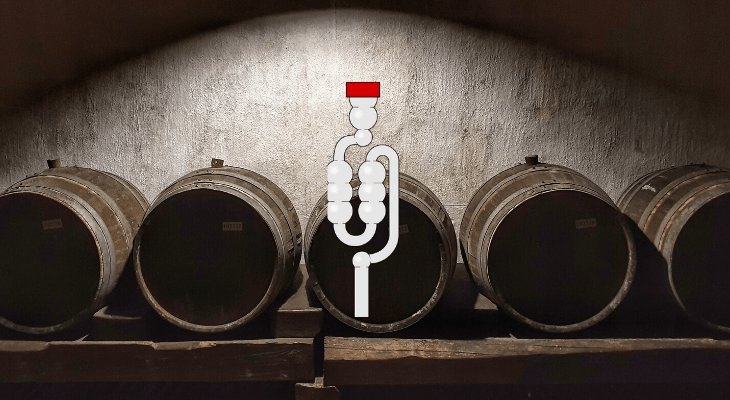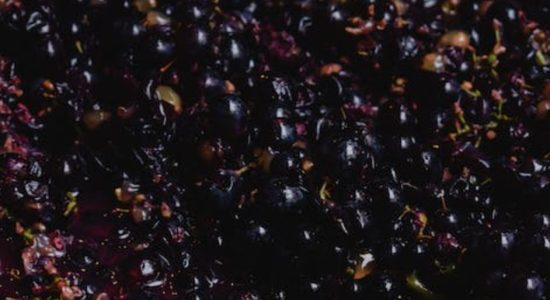Do You Have to Use an Airlock When Fermenting? (Quick Guide)

While being an at-home-winemaker there is a lot to keep track of, and there are a lot of different ways to do it. Do you have a little doubt about what’s right and what’s wrong? Let’s get a grip on the situation.
Do You Have to Use an Airlock When Fermenting? That depends on which stage in your winemaking you’re in. In the primary fermentation, it’s not necessary to use an airlock. But afterward, in the second fermenter, it’s must-needed for you to use the airlock.
Would you like to know more about the use of airlocks for fermentation, and in-depth about what fermentation is? If this is the case you should take a look at this post.
Read Also: What Are The Best Airlocks For Homebrewing?
What do you mean by fermentation?
Fermentation originates from the Latin expression fermentum.
Fermentation occurs not only when we’re talking about winemaking, but it also appears in cooking.
While speaking about the fermentation of wine, it means that you turn grapes into alcohol by using special methods.
What causes fermentation?
In the overall content fermentation is a chemical process which occurs via microorganisms and their enzymes. While fermenting, organic material decomposes to other organic materials, inorganic materials or a mixture.
When we’re talking fermentation in the form of alcoholic, inorganic materials are formed in terms of carbon dioxide, and organic materials in terms of ethanol, alcohol.
But what exactly happens in the fermentation of wine? Now, let me tell you. A grape contains sugar. This sugar content depends on how much sunlight the grape has gotten. In other words; the more sunlight a grape has got, the sweeter it is.
On the outside of the shell, there are yeast cells. When the shell is broken, the yeast cells get in contact with the sugar, that’s when it transforms to alcohol -and then we actually have wine.
If this whole process is performed systematically it’s called fermentation. All in all, fermentation is a process that turns sugar and yeast into alcohol.

Are you more curious about making your own wine? just take a look at these posts:
How To Make Grape Wine Without Yeast?
How Much Sugar To Add When Making Wine?
What Are The Different Stages Of the Fermentation Process?
When you’re making wine at home there are two stages in the process, which you have to pay attention to:
#1 Primary fermentation
Primary fermentation is when the bulk of your fermentation is happening. This happens within the first three to six days. It’s very different how fast the primary ferment is going because it depends on how your yeast is cooperating with the must.
It’s actually pretty easy to see when you’re in the primary stage because of the visible activity. There will often be some foam on the top op the musk. The reason is that the yeast population is growing fast because of the huge amount of sugar, oxygen and nutrients.
In this stage of fermenting the biggest amount of alcohol is produced. Up to 70% of the alcohol is produced in the first three to six days.
After this, we move to secondary fermentation.
#2 Secondary fermentation
Secondary fermentation is after the primary ferment. Here the process starts to slow down. While there were produced about 70% of the alcohol in the primary ferment, the last 30% will take up to two weeks. The reason why is because of the sugar and the oxygen. The bulk of the sugar has been used up and the oxygen has been depleted. The yeast population can therefore no longer expand.
What Is The Best Temperature To Ferment Wine?
While mixing the ingredients you can control how the fermentation plays out. Another factor that is playing a role in the fermentation is the temperature. So, the temperature thereby plays a role in how long time the fermentation will take, but also the flavor development.
But what is the best temperature to ferment wine? This depends on which wine we are dealing with. While fermenting white wine the temperature has to be lower than if you are fermenting red wine. White wine has delicate aromas that will get lost if they are fermented at too high temperatures.
On the other hand, red wine takes advantage of a warmer fermentation with better tannin and color extraction.
NOTE: Quite generally, white wine will conserve their aromas better if they are fermented with a temperature around 55F. The quality of a red wine will become the best with a fermenting temperature around 70F.
Why use an airlock in fermentation? Can you ferment without an airlock?
The reason why to use an airlock while fermenting is to protect the wine from contamination. On the other hand, if the airlock is left off under the primary ferment, the more oxygen is added to the wine.
This method will lead the wine to a more vigorous fermentation which leads to a faster and more thorough process. Some people recommend leaving the airlock on under the primary ferment. While keeping the lit on you decreases the risk of getting the wine ruined by, for example, airborne contamination by sealing the container from the very beginning.
And so it comes down to:
#1 Leaving the airlock off will help the fermentation to start earlier and continue more rapidly. This can also have a negative effect to leave the fermentation susceptible to contamination if it will not start in a timely fashion.
#2 Leaving the airlock on will keep the fermentation protected. Using this method will cause the primary fermentation to go more slowly.
REMEMBER: It is very important to make it clear that it’s only possible to leave the airlock off in the primary fermentation.
As soon as the fermentation starts to slow down, and it’s time to rack the wine into a secondary fermenter, always use an airlock.
Also, if the fermentation is not starting out as quickly as it should, then put the airlock on until the fermentation is going.
So all in all; using an airlock or not during the primary fermentation, the wine will be made. The airlock is only a question about how fast and how strong the fermentation proceeds. Therefore it’s not a matter however your wine will turn out or not.
Do you wanna learn even more about fermentation, then check out this post: What Happens If Wine Ferment Too Long?
This article was made with support from Smartphones Revealed. Do you want to learn more about The History of the mobile phone and the future of mobile technology? Find great reviews and comparisons of the newest smartphones on the market.
SmartphonesRevealed is my go-to-platform to get guides & tips about smartphones!
Read Also: What Hoses Are The Best For Homebrew?







